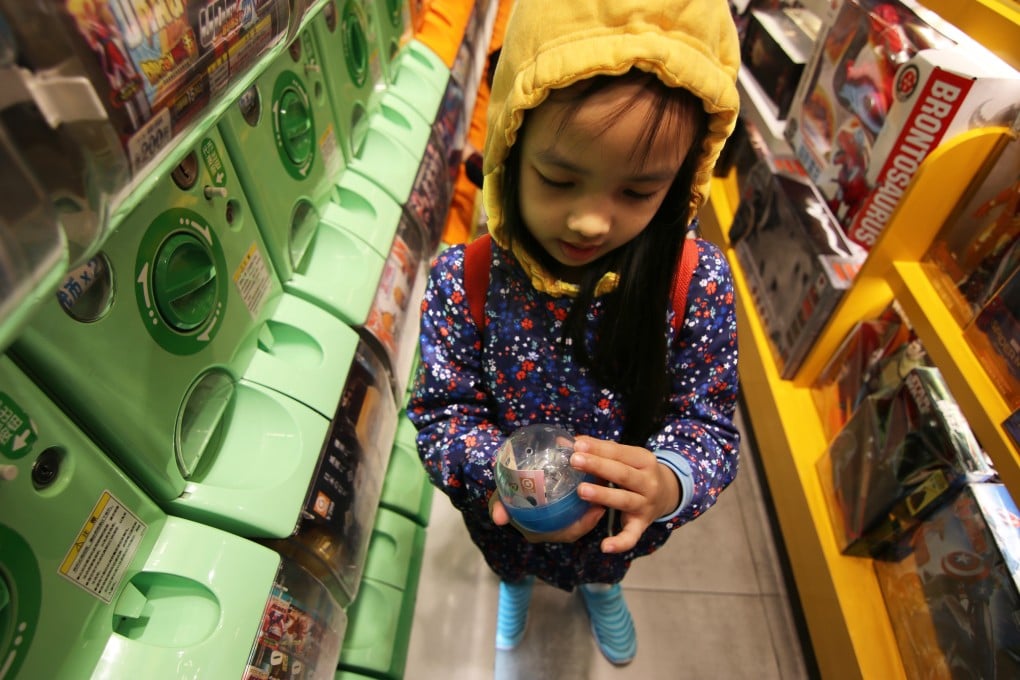China’s digital currency can soon be used in China to buy toys from Japanese vending machines
- Gashapon vending machines that dispense capsules with toys based on popular anime series like One Piece and Detective Conan will help trial the digital yuan
- China’s central bank digital currency has already been used in transactions worth about US$162 million

Toy vending machines are a popular fixture in China’s myriad shopping centres and entertainment venues, as they help attract young consumers. China’s central bank now sees these vending machines as a means to further expand the use of the country‘s digital currency.
Shanghai-based company Delfino, a unit of Japanese housing builder Okura, has been tapped to supply these so-called gashapon machines that will be installed in various areas on the mainland where the People’s Bank of China (PBOC) is conducting tests for the country’s digital yuan, according to a report by Nikkei Asian Review on Saturday. Gashapon machines distribute collectible toys. In this case, the toys include those based on popular manga and anime series like One Piece and Case Closed, also known as Detective Conan.
The 5G-connected machines support mobile payments that use either QR codes or near-field communications (NFC). The machines were updated to support NFC at the central bank’s request, according to the Nikkei report.
The frequent use of small payments make gashapon machines ideal for testing China‘s new digital currency, according to Delfino.
The digital yuan, known officially as Digital Currency Electronic Payment (DCEP), is part of China’s plan to move towards a cashless society. Using digital tokens can help digital currency supplant cash, but central bank digital currencies are different from mined cryptocurrencies like bitcoin, which operate on a decentralised peer-to-peer network. The amount of digital yuan in circulation, just like China’s physical legal tender, is controlled by the PBOC.